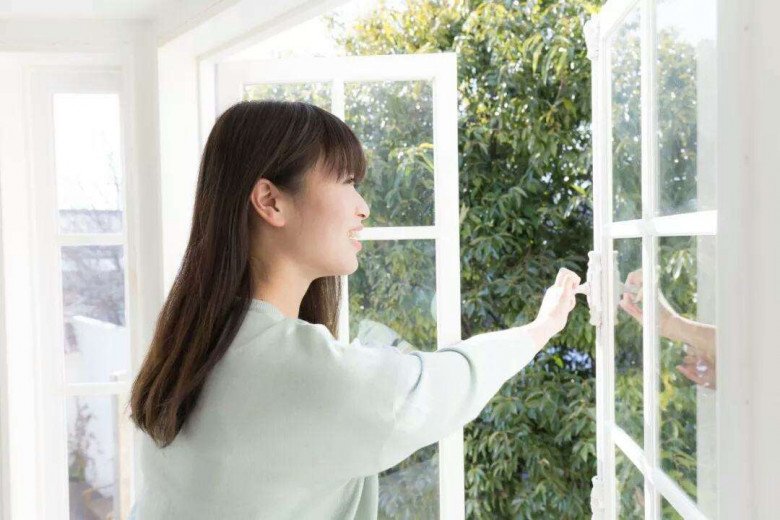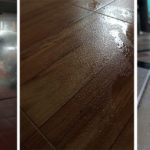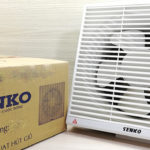Opening windows for ventilation is essential, as it helps improve air circulation in the house, while reducing the growth of bacteria, thereby improving air quality and making people feel more comfortable. However, there are certain times when you should never open windows for ventilation.
1. Do not open windows in the early morning
In the early morning, before the sun rises, plants are still in a “sleeping” state. At this time, after a night of rest, the carbon dioxide levels in plants reach their peak during the day. Therefore, opening windows for ventilation and breathing fresh air at this time is completely pointless.
This is also the time when the pollution levels in the outdoor air may be higher compared to indoors, as well as the humidity levels. Therefore, the air pollution during this time may be worse indoors.
Additionally, the temperature in the early morning is relatively low, and opening windows abruptly can cause cold air to enter the room (especially in winter), resulting in a sharp decrease in room temperature, causing colds or other health issues.
Therefore, windows should only be opened after the sun has risen to improve air quality.

2. Do not open windows when the sky is cloudy
During foggy weather, the levels of fine dust particles in the air are very high, and these particles are harmful to human health. Opening windows during this time can easily allow these particles to enter the room and pose a danger to the health of your family members.
In this case, it is advisable to use an air purifier to improve indoor air quality.
3. Do not open windows when the temperature is too low
When the outside temperature is too low, opening windows can allow cold air to enter the room and make people feel chilly. This can weaken the body’s immune system and make people more susceptible to catching a cold.
Therefore, when the temperature is too low, it is better to use an air conditioner or a heater to regulate the indoor temperature instead of opening windows for ventilation.

4. Do not open windows when the humidity is too high
When the weather is very humid, the walls and floors become damp. Many people tend to open windows hoping that fresh air will help dry the house. But in reality, this is a mistake.
When the outdoor humidity is too high, opening windows can allow humid air to enter the room, increasing the indoor humidity. This can lead to the growth of mold, which poses a danger to your family’s health.
In this case, it is advisable to use a dehumidifier or place charcoal under the bed or in corners to reduce indoor humidity and keep the room dry.
5. During peak morning and evening rush hours
Opening windows during these two times in densely populated cities is not recommended. As we know, peak traffic hours are from 7 to 9 in the morning and from 5 in the evening to 7 at night.
During these times, the traffic volume is high, resulting in a high level of vehicle exhaust emissions. Opening windows during these times can allow pollutants from vehicle emissions to enter the room, negatively affecting the respiratory and immune systems of humans. Especially vulnerable are the elderly, children, pregnant women, and people with chronic diseases.
Apart from these 5 aforementioned times, there are other situations where you need to pay attention to opening windows. For example, in extreme weather conditions like strong winds, rain, or snowfall, opening windows can allow rainwater and dust to enter the room, affecting the indoor environment.
According to Thoi Bao Van Hoa Nghe Thuat
Preparing Yellow Apricot Flowers to be in Full Bloom for Tet Celebration
As the Lunar New Year quickly approaches, many families are looking for guidance when it comes to selecting, purchasing, maintaining, and decorating with beautiful golden apricots. To ensure you get the most out of this lovely tradition, this article will provide you with specific instructions for choosing, caring for and decorating with yellow apricot blossoms. Learn how to make the most of this iconic symbol of the Tet holiday season!





































